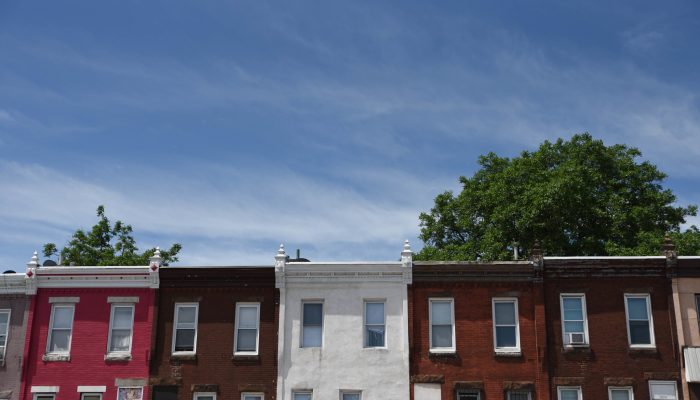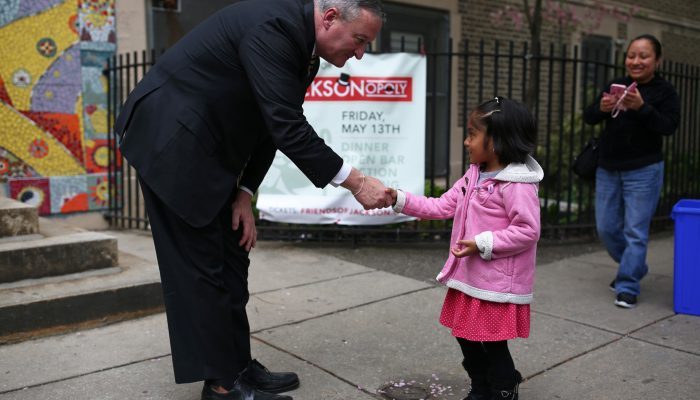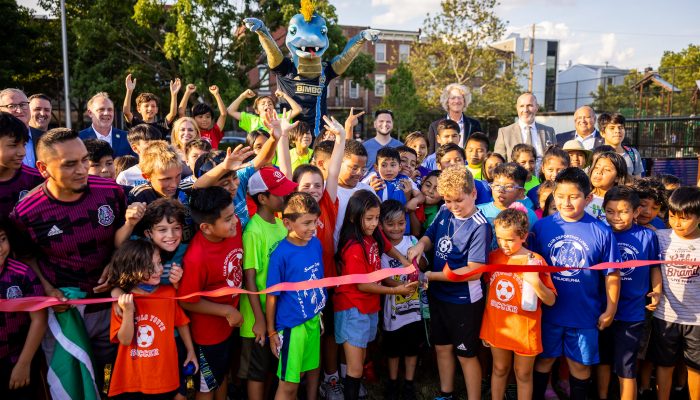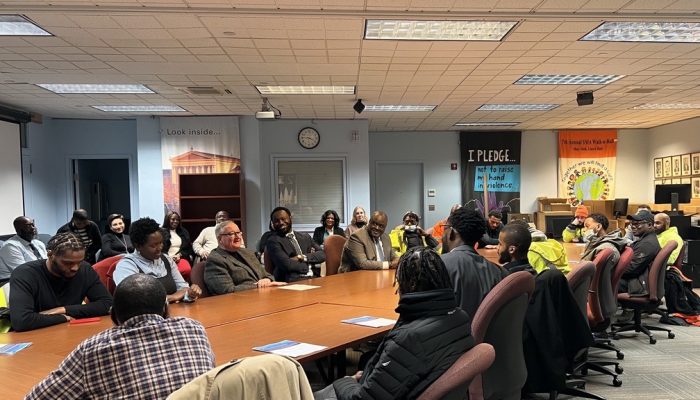The big news: Philadelphia’s 2018 poverty rate declined to 24.5%, down from 25.7% in 2016, according to the U.S. Census Bureau. This is the lowest our poverty rate has been since the recession hit in 2008.
The 1.2% difference means that nearly 15,000 Philadelphians are no longer living below the poverty line. What’s more, our city’s median income rose to $46,116, up from $43,153 in 2016.
So, how did this happen?
Fighting poverty in Philadelphia
Philadelphia’s high poverty rate has spanned generations, reflecting decades of job losses and historic, structural racism in our society.
Mayor Kenney and his Administration have invested in a multi-pronged approach—focused on stabilizing households, increasing skills and incomes, and investing in education—to lift residents out of poverty and to break the cycle for future generations.
Based on the latest news from the U.S. Census Bureau, our strategy is working, assisted by a historically low unemployment rate and a job growth that outpaced the national average over the past three years. There’s much more to do, but the decline in the poverty rate and the rise in median income provides encouraging evidence that we’re on the right path.
Stabilize Philadelphians who need support now
Preserving Affordable Housing and Keeping Residents in Their Homes:
- The $80 million Housing Trust Fund maintains and builds our capacity for affordable housing.
- 405 households have benefited from our homeless services and rapid re-housing efforts.
- The $40 million Renew, Repair, Restore program provides assistance for needed home repairs so people can stay in their residences.
- 500 recovery house beds will be open for those who need them by the end of this fiscal year. As of this point, we’re about 30 beds away from reaching that number.
- Our $4 million shallow rent subsidy provides relief for families that need emergency help to cover rent.
- An annual $2.1 million investment will provide renters with eviction prevention services, including legal counsel, starting in FY20.
- 200,000 households have claimed $120 million in water bill and homeowner tax relief.
Accessible Health Care and Social Services:
- A new City-run health center is in the works for Northeast Philadelphia.
- More than 20,000 residents have secured $20 million in previously unclaimed public assistance through our BenePhilly program.
- Family Empowerment Centers and an annual 250 Parent Cafes (events for caregivers) provide support for families.
Increase incomes to lift Philadelphians out of poverty
Employment and Skills:
- Our Apprenticeship PHL program is on track to help 500 people build meaningful careers.
- Our Rebuild Workforce Program will be guiding 150 Philadelphians to pursue construction apprenticeships .
- The $1 million Fair Chance Hiring Program incentivizes employers to hire returning residents .
- Four PA CareerLink centers deliver workforce and skills training services, including enhanced services at Community Schools and some libraries.
Opportunities to Work and Save:
- New $15 minimum wage for City employees and contractors gives people the opportunity to earn a living wage.
- 26,000 tax returns prepared for free through our EITC prep program resulted in $37.2 million in federal tax refunds, including $11 million from EITC alone.
- Hundreds of people received one-on-one financial counseling at our Financial Empowerment Centers in 2018.
Vital Worker Protections:
- The Fair Scheduling legislation provides stability to workers.
- The new Mayor’s Office of Labor enforces our city’s wage laws.
Access to Continued Education:
- Over the next five years, the City will provide $170 million to support the Community College of Philadelphia.
- 5 myPLACE Campuses for adult education services and Adult Education Classes are available in neighborhoods at a dozen Community Schools.
- Keyspots provides a network of 50 public, private and nonprofit organizations and recreation centers delivering technology,digital literacy training, and career services.
Support for Small Businesses and Entrepreneurs:
- 180 grants were awarded to small businesses in 2018.
- A $2 million loan fund provides investments in minority-owned businesses.
Invest in future generations of Philadelphians
Quality Education
- PHLpreK will grow to serve 5,500 children each year by 2023. (Funded by the Philadelphia Beverage Tax)
- 20 Community Schools will provide needed support for students, families, and community members by 2020. (Funded by the Philadelphia Beverage Tax)
- Through a $23 million annual investment, the Out-of-School Time initiative expands quality learning opportunities outside of the classroom, after-school and during the summer.
- During the summer months, approximately 8,000 young people gain access to a summer job thanks to a combined $13 million investment by the City and Philadelphia Works, with additional investment from philanthropy and the private sector.
Criminal Justice Reform
- Jail population has decreased by 40% (from 2015 to 2019).
- The School Diversion Program stems the school-to-prison pipeline, reducing arrests by 64%. (2015-16 compared to 2013-14)
- The number of young people in residential care (facilities for supervision of children, such as group homes) has decreased by 74%.
The goal of this work: Improve the lives of all Philadelphians. The decrease in our poverty rate and the increase in our median income are encouraging indicators—but our work is far from over.
We will continue to fight for our residents to improve their financial stability, and to break the cycle of poverty for our children.




